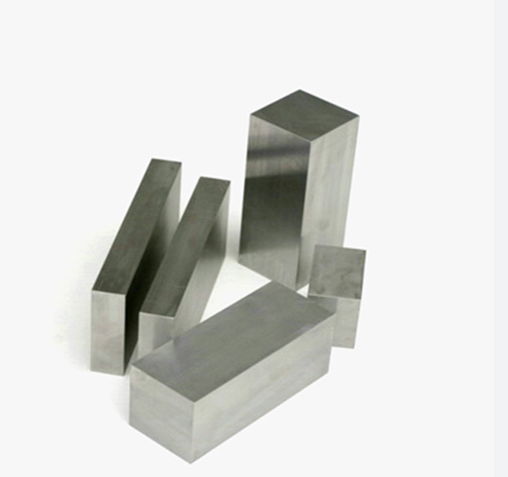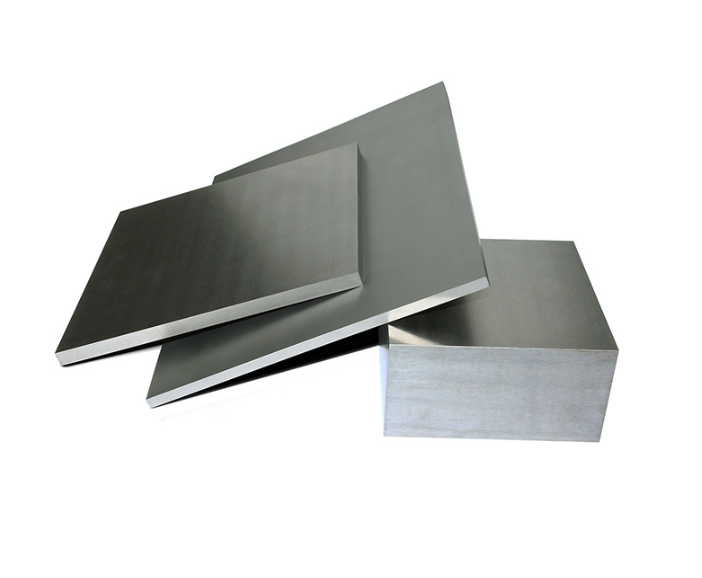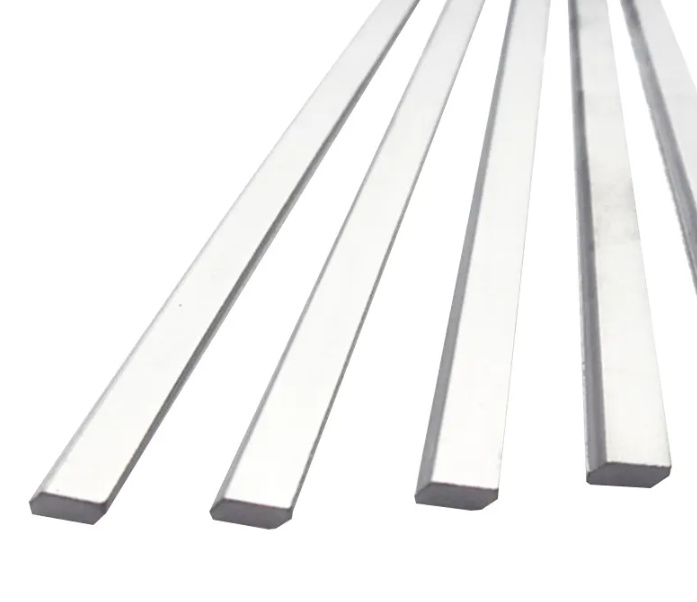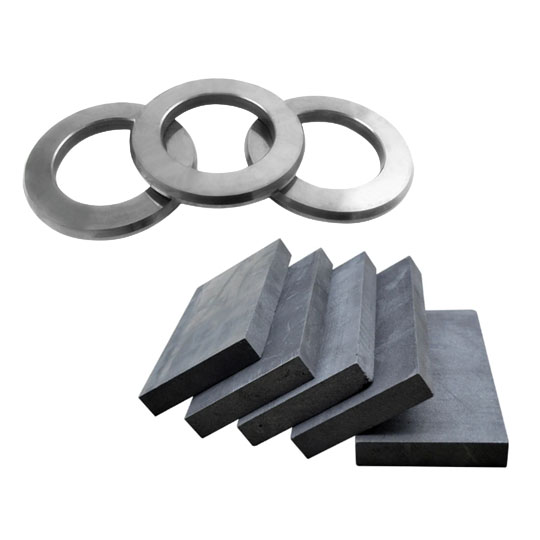Introduction
Definition of cemented carbide round rod
Cemented carbide round rod refers to a type of material widely used in various industries due to its exceptional hardness and wear resistance. It is composed of tungsten carbide particles bonded together by a metallic binder, typically cobalt. This unique combination of materials results in a high-performance tool that can withstand extreme conditions and deliver superior cutting and machining capabilities. The cemented carbide round rod is extensively used in applications such as metalworking, woodworking, mining, and construction, where precision and durability are of utmost importance. With its remarkable properties, the cemented carbide round rod has become an indispensable component in modern manufacturing processes, revolutionizing the way industries operate.
History of cemented carbide round rod
Cemented carbide round rod has a rich history that dates back to the early 20th century. It was first developed as a cutting tool material by researchers seeking to improve the performance and durability of tools used in metalworking industries. The breakthrough came with the discovery that combining tungsten carbide particles with a metallic binder, such as cobalt, resulted in a material that was incredibly hard and wear-resistant. This led to the widespread use of cemented carbide round rod in various applications, including drilling, milling, and turning. Over the years, advancements in manufacturing techniques and material compositions have further enhanced the properties of cemented carbide round rod, making it an indispensable tool in modern machining processes.
Applications of cemented carbide round rod
Cemented carbide round rods find a wide range of applications in various industries. One of the key uses of cemented carbide round rods is in the manufacturing of cutting tools. The exceptional hardness and wear resistance of cemented carbide make it an ideal material for producing high-performance cutting tools that can withstand the demands of heavy-duty machining operations. Additionally, cemented carbide round rods are also utilized in the production of wear parts, such as nozzles, dies, and punches, due to their excellent durability and ability to withstand extreme conditions. Moreover, these rods are extensively employed in the automotive and aerospace industries for applications like drilling, milling, and turning. The unique combination of strength, toughness, and heat resistance offered by cemented carbide round rods makes them indispensable in the field of metalworking and manufacturing.
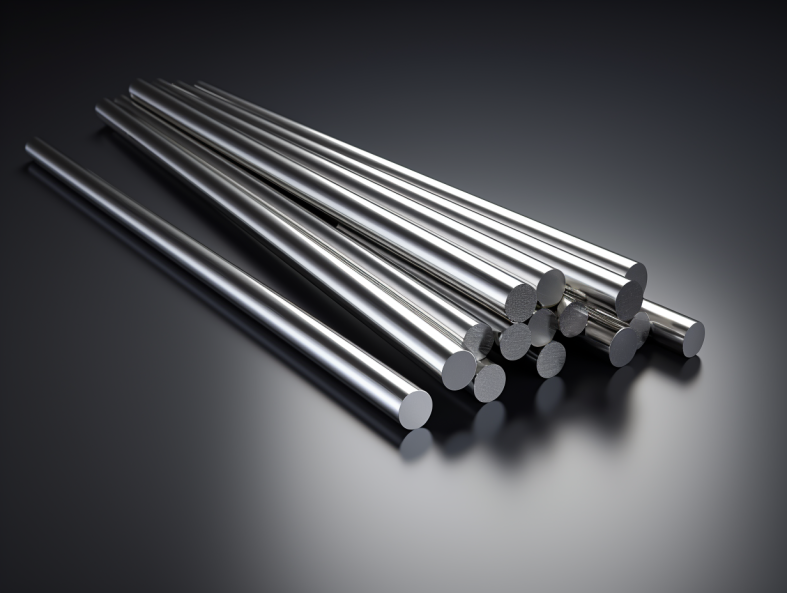
Composition
Tungsten carbide
Tungsten carbide is a type of cemented carbide that is widely used in various industries. It is known for its exceptional hardness and strength, making it ideal for applications that require high wear resistance. The round rod form of tungsten carbide is particularly popular due to its versatility and ease of use. It can be used in the manufacturing of cutting tools, such as drills and end mills, as well as in the production of wear parts for machinery and equipment. Additionally, tungsten carbide round rods are also used in the aerospace and automotive industries for their excellent performance in extreme conditions. Overall, tungsten carbide round rods are essential components in many industrial applications, providing durability and reliability.
Cobalt binder
Cobalt binder is an essential component in cemented carbide round rods. It plays a crucial role in enhancing the mechanical properties and overall performance of the rods. The cobalt binder acts as a binding agent, holding the tungsten carbide grains together, providing strength and toughness to the rod. Additionally, it helps in improving the resistance to wear and corrosion, making the cemented carbide round rods highly durable and reliable. The precise amount of cobalt binder used in the manufacturing process determines the hardness and other characteristics of the rods, making it a critical factor in producing high-quality cemented carbide round rods.
Other additives
Cemented carbide round rods are widely used in various industries for their exceptional hardness and wear resistance. However, in addition to the main components of tungsten carbide and cobalt, there are also other additives that contribute to the unique properties of these rods. These additives, such as titanium carbide and tantalum carbide, enhance the toughness and strength of the cemented carbide round rods, making them suitable for demanding applications in cutting tools, mining equipment, and wear parts. With the inclusion of these additives, the cemented carbide round rods offer improved performance and durability, ensuring reliable and efficient operations in challenging environments.
Manufacturing Process
Powder preparation
Powder preparation is a crucial step in the production of cemented carbide round rods. It involves the careful selection and processing of raw materials to achieve the desired composition and properties. The main raw materials used in powder preparation include tungsten carbide, cobalt, and various additives. These materials are blended, ground, and mixed to create a homogenous powder mixture. The powder is then compacted into a desired shape and sintered at high temperatures to form a solid carbide rod. The quality of the powder preparation process directly affects the final product’s performance and durability. Therefore, meticulous attention is given to every detail during this stage to ensure the production of high-quality cemented carbide round rods.
Mixing and blending
Mixing and blending are crucial steps in the production of cemented carbide round rods. During this process, various raw materials, including tungsten carbide powder and cobalt powder, are carefully measured and mixed together in precise proportions. The mixture is then blended using specialized equipment to ensure a homogeneous distribution of the powders. This blending step is essential to achieve a consistent composition and quality of the cemented carbide round rods. Proper mixing and blending result in improved mechanical properties, such as hardness and toughness, making the rods suitable for a wide range of applications in industries such as automotive, aerospace, and machining.
Compaction and shaping
Compaction and shaping are crucial steps in the production of cemented carbide round rods. During the compaction process, fine tungsten carbide powder is mixed with a binder, such as cobalt, and pressed into a desired shape. This ensures that the powder particles are densely packed, resulting in a solid and uniform structure. Shaping is then performed to further refine the rod’s dimensions and form. Various techniques, including extrusion and rolling, are used to achieve the desired shape and size. These processes play a vital role in determining the quality and performance of the cemented carbide round rods.
Properties
Hardness
Cemented carbide round rods are known for their exceptional hardness. The hardness of these rods is a result of the combination of tungsten carbide particles and a metallic binder. This unique composition gives the rods a high resistance to wear, making them ideal for applications that require cutting, drilling, or shaping of tough materials. The hardness of cemented carbide round rods ensures their durability and longevity, allowing them to withstand the most demanding industrial environments.
Wear resistance
Cemented carbide round rods are known for their exceptional wear resistance. This unique property makes them highly suitable for applications where the material is subjected to constant friction and abrasion. The combination of a hard carbide phase and a tough binder phase gives these rods the ability to withstand extreme wear and maintain their shape and performance over time. Whether used in cutting tools, mining equipment, or industrial machinery, cemented carbide round rods provide reliable and long-lasting wear resistance, ensuring efficient and durable performance in various industries.
Strength
Cemented carbide round rod is known for its exceptional strength and durability. It is a high-performance material that is widely used in various industries, including manufacturing, construction, and mining. The strength of cemented carbide round rod is derived from its unique composition, which consists of tungsten carbide particles embedded in a metallic binder. This combination of hard carbide particles and a tough binder results in a material that is highly resistant to wear, corrosion, and deformation. The superior strength of cemented carbide round rod makes it an ideal choice for applications that require the ability to withstand heavy loads, high temperatures, and harsh operating conditions. Whether it is used as a cutting tool, a wear-resistant component, or a tooling insert, cemented carbide round rod delivers unparalleled strength and performance.
Advantages
High hardness
Cemented carbide round rods are known for their exceptional hardness, making them ideal for various industrial applications. In particular, when it comes to high hardness, these rods stand out from other materials. The unique composition of cemented carbide, which is a combination of tungsten carbide particles embedded in a metallic binder, gives these rods their remarkable hardness. This high hardness allows them to withstand extreme conditions and resist wear and tear, making them suitable for use in cutting tools, drilling equipment, and wear-resistant components. Moreover, the hardness of cemented carbide round rods ensures excellent performance and durability, making them a preferred choice in industries such as automotive, aerospace, and manufacturing.
Excellent wear resistance
Cemented carbide round rods are known for their excellent wear resistance. With a combination of high hardness and toughness, these rods are able to withstand extreme conditions and maintain their integrity over time. Whether used in cutting tools, mining equipment, or industrial machinery, cemented carbide round rods provide superior performance and durability. Their exceptional wear resistance ensures longer tool life and reduced downtime, making them a reliable choice for various applications. Furthermore, the versatility of cemented carbide round rods allows for customization to meet specific requirements, further enhancing their suitability for different industries. Overall, the outstanding wear resistance of cemented carbide round rods makes them a valuable asset in any demanding environment.
Good dimensional stability
Cemented carbide round rods exhibit excellent dimensional stability, making them highly suitable for various industrial applications. The unique composition of cemented carbide, consisting of tungsten carbide particles bonded together with a metal binder, ensures minimal deformation even under extreme conditions. This exceptional dimensional stability allows for precise machining and manufacturing processes, resulting in high-quality products with tight tolerances. Whether it is for cutting tools, wear-resistant parts, or tooling components, the good dimensional stability of cemented carbide round rods ensures reliable and consistent performance in demanding environments.
Applications
Cutting tools
Cemented carbide round rods are widely used in the manufacturing of cutting tools. Known for their exceptional hardness and wear resistance, these rods are essential for producing high-quality tools that can withstand the rigors of cutting and shaping various materials. The unique composition of cemented carbide, which consists of tungsten carbide particles embedded in a metallic binder, provides the rods with superior strength and durability. This allows cutting tools made from cemented carbide round rods to maintain their sharpness and cutting performance for extended periods, resulting in efficient and precise machining operations. Whether used in milling cutters, drills, or inserts, cemented carbide round rods are indispensable in the field of cutting tools, enabling the production of tools that deliver consistent and reliable performance.
Milling inserts
Milling inserts are essential tools used in machining operations to achieve precise and efficient cutting. When it comes to working with tough materials such as cemented carbide, using the right milling inserts is crucial for optimal performance. Cemented carbide round rods are a popular choice for milling inserts due to their exceptional hardness and wear resistance. These round rods are made by combining tungsten carbide particles with a binder material, resulting in a strong and durable tool. The unique composition of cemented carbide round rods allows for high cutting speeds and extended tool life, making them ideal for demanding milling applications. Whether it’s roughing, finishing, or contouring, milling inserts with cemented carbide round rods provide the reliability and precision needed to achieve superior machining results.
Drill bits
Drill bits are essential tools used in various industries for creating holes in different materials. One popular type of drill bit is the cemented carbide round rod. This type of drill bit is known for its exceptional hardness and durability, making it ideal for drilling through tough materials like concrete, metal, and wood. The cemented carbide round rod features a solid construction with a tungsten carbide tip, which provides excellent heat resistance and wear resistance. With its superior performance and long lifespan, the cemented carbide round rod is a reliable choice for professionals and DIY enthusiasts alike.

